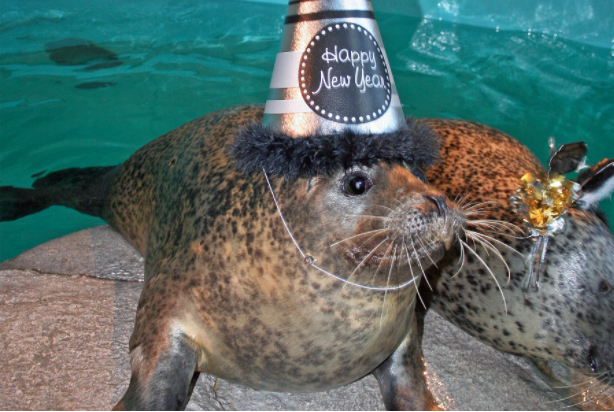Due to a principle behavioral scientists call The Fresh Start Effect, people are more likely to make steps towards improved health, finances, and other goals on a day that indicates starting again (like a reboot) such as New Year’s Day.
It is inevitably much easier to make New Year’s resolutions than to keep them.
— This article by Jeff Kreisler was submitted to Darienite.com by his publicists. You can find more information about Kreisler below.
Behavioral Science provides the necessary tips to isolate what truly motivates people to make changes; so, seize the day to make a fresh start this New Year’s Day, with resolutions that you may be more likely to maintain.
1. Be Smart
Your goals should be Specific, Measurable, Achievable, Realistic and Time-bound. Don’t say you’re going to “give up desert,” instead try to have “no more than one desert, every week, for two months.” You can do that. Then make it three months, four months and more …
2. Make the Rewards Immediate
Don’t make your goal to look good in a bathing suit in eight months. We don’t emotionally connect to the future as much as we do to the present. Instead, make the reward something immediate, whether it be the aforementioned TV splurge or a visible mark of progress on the scale. Acknowledge the little steps along the way and appreciate that you’re making progress. Don’t be obsessed with the long-term goal.
3. Bundle Temptation
If there’s a new habit you want to start, but know it will be a challenge, try combining it with an existing guilty pleasure. You want to work out more and you love bingeing Real Housewives? Make a deal that you can watch two episodes for every half hour you sweat. The workout becomes the first step in the pleasure watching of the TV.
4. Make it Automatic
Habits are activities we engage in unconsciously through prompts in our environment. As much as possible, identify what triggers your bad habits, then create a new system – reminders, rewards, — to make the new habit automatic from that point onward.
5. Relapse is OK
A missed workout, a secret late-night snack, a long nap. Lapses are normal and expected. Don’t let them take away from your long-term goals or signal failure. They’re all part of the process.
6. Have Fun and Be Emotional
When designing resolutions and new habits, don’t rely on obligation and discipline. Instead, build your resolutions around emotions both general and specific.
Remember, emotions are what drive our unconscious decision making, so infuse some joy, purpose and meaning into your new habits so they’re something which you look forward to, through whatever tools you design to help you achieve them.
About Jeff Kreisler
PeopleScience is headed by Editor-In-Chief Jeff Kreisler, the bestselling author – with Dan Ariely – of Dollars and Sense: How We Misthink Money and How to Spend Smarter. Listed as one of the top business books of 2017 by, among others, Business Insider, Huffington Post, Audible and The Washington Post – who called it “a brilliant and accessible look at behavioral economics” – Jeff is also a financial columnist (TheStreet.com), recovering attorney (Princeton, Virginia Law), award-winning comedian (“Laugh out loud, roaring” – CNBC, “Hilarious” – Chicago Tribune, “Delectable” – New York Times) and on-air pundit for MSNBC, CNN Headline News, FoxNews and Sirius/XM.

Photo from the Maritime Aquarium
Happy New Year!
SIDEBAR:
Learn More About Making and Keeping Resolutions: 10 Articles
Gathered by Darienite.com. Pick and choose what to read and what to use. Take all advice with a grain of salt: “Experts” and “research” and “science” can sometimes be wrong, but there are likely some tips here that won’t do any harm to try:
- ONE: Fifty New Year’s Resolution Ideas and How to Keep Each of Them (LifeHack.org)
- TWO: How to Set New Year’s Resolutions that Maximize Happiness (Washington Post, Dec. 31)
- THREE: How to Make (and Keep) a New Year’s Resolution (New York Times, one of a number of articles on resolutions; no date given)
- FOUR: Making Your New Year’s Resolution Stick (American Psychological Association)
- FIVE: New Year’s Resolutions You Should Make Based on Science — and How to Keep Them (Business Insider, Dec. 12, 2018)
- SIX: Your Financial New Year’s Resolutions: How to Stick to Them (Key Bank)
- SEVEN: How to Keep Your New Year’s Resolutions: Research Explains What Works Best (Psychology Today, Dec. 26, 2017)
- EIGHT: Ditch Your New Year’s Resolutions. Instead, Plant Your Seed Habit. (Forbes, Dec. 19)
- NINE: Make Use Of These Top 7 Tips To Achieve Your Goals In 2019 (Forbes, Dec. 30)
- TEN: How to Create Strong Financial New Year’s Resolutions (Forbes, no date given)

